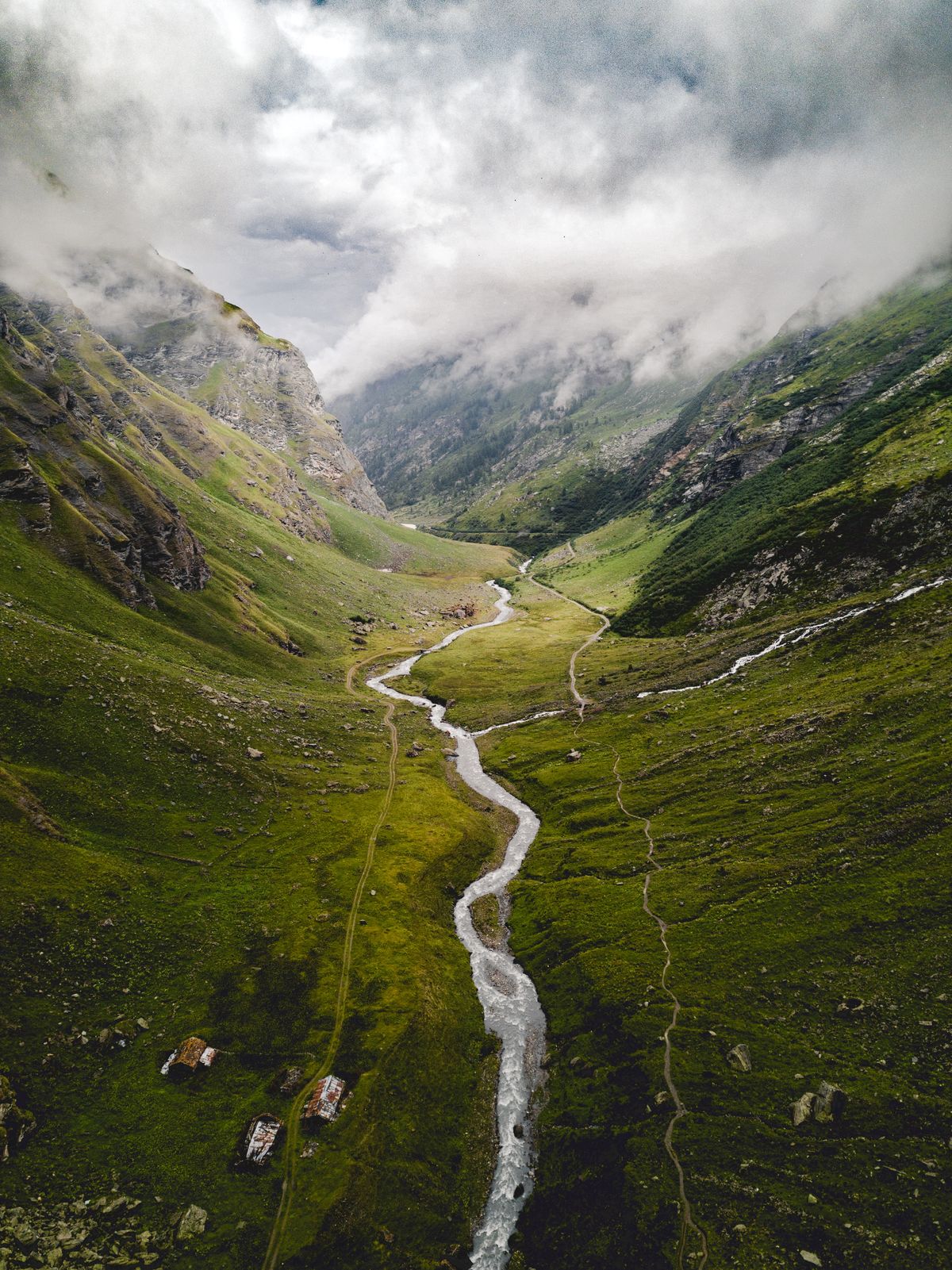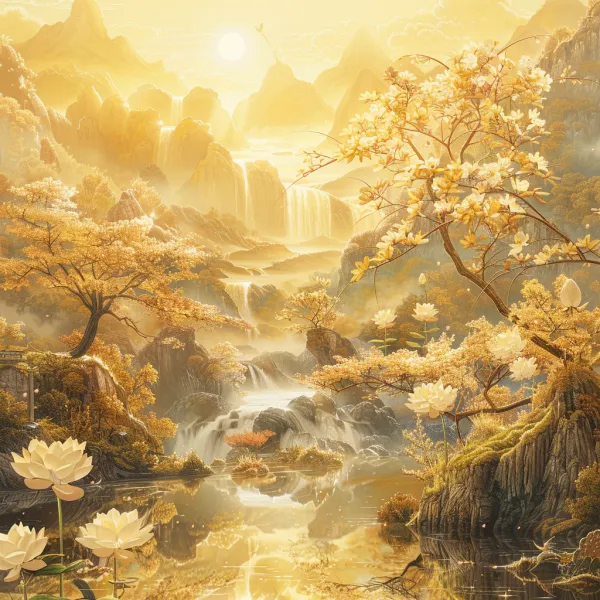From streams to rivers to streams

Things constantly changing is the constant in music. A river goes to many streams. Eddies and pools form among the rocks. Things coagulate and form again. We went through a period of time in which music was multifarious. Separated by time and space, many styles came to be. Before the linkage of common notation and the industry consolidation of transferable records, different streams of music were abundant in the pre-Edison days. From city to city, different scenes of peculiar harmonies bubbled like the formation of a stop-motion movie. Then came the foaming and steaming, the upheaval of the industry. All the different rivulets joined together, jostling for the opportunity to serve a wider audience. Then came the realisation of profit. Although music was priced at affordable amounts (especially compared to live performances), at such a wide audience and large volume, the money that was made was much more than before. The money to be made was even greater. Thus, fame became all too valued and even more so. To be a marketable young artist with the ability to target important demographics became all too important. Thus, came the rise of Michael Jackson and Britney Spears. Artists who could capitalize on radio time and sell records became more important than simply performing. The radio served the mainstream. The records that could sell were those that appeared palatable to the public tongue. Thus, the many streams became a single river.
In our day and age, we have returned to the streaming age. There are two factors that have contributed to the re-division of the music industry. The first is the ease-of-creation and ease-of-distribution. The second is the ease-of-access. Through the internet, it has become possible to bypass the radio channel and still reach a comparable audience, or at least a financially significant audience. Thus, the standards imposed by radio in terms of aesthetics or quality have become largely irrelevant. In addition to the ease-of-distribution, music has become significantly easier to create through the advent of Digital Audio Workstations (DAWs) and Digital Plugins. Through the increase in the volume of available music, it has become easier- No, it has become mandatory to provide music widely at low cost. Low cost not as in Steve Jobs's famous "99c" but low cost as in "virtually free".
The river has become diluted and dirty. There is an unclean air by the banks. Although the streams continually jostle, they are unable to resonate in the hearts of their audience. There is no longer a defining sound by which one can say "This is the sound of the 90s" or "This is the sound of the early 2010s". There are no longer any pre-dominant trends. The last avatar of the lineage or possibly dominant trend that could barely be called one is the influence of trap music on popular music. Now, it is harder to even define the sound of "pop music" in this day and age. The efforts of the Anti-pop experimentalists of 2018 fizzed out. The golden vein has run out. Now musicians can barely scrap for coins under the river, making barely cents performing (through streams) for masses.
The response to this has been to follow trends and aim for virality. Tiktoks line the shelves. This is the age of algorithms and playing the roulette of trying to capture an increasingly fickle heart. The attention spans and the interests of our generation appear to shift more rapidly than the rotation of car-wheels. In a bid to keep up, artists follow any sprouting musical aesthetic. Ultimately, virality is a tool. It can't be exchanged for substance. As quickly as these hearts are bought, as quickly they forget. Like a net that draws in many fish, only a few are right for the chopping board. And filling a net with fish can't be compared with taking out the right fish. And taking out the right fish can't be compared with filling the ocean with fish. Therefore, artists must learn to build their own foundation. Like growing a tree, they must learn to work with substance.
First, artists must learn to give up fame. Fame is effectively worthless. Nowadays, artists have become accustomed to the glory and pleasure of fame. This allure renders them more fish than fishermen. The software makers, drum-kit providers, and microphone sellers all make money based on this hope. But, the actual artists go hungry. Is this right? What an artist seeks is not fame or money but recognition. What an artist desires is not more than appreciation and understanding. Yet, we are told that through fame (running after the love of this wide audience), we will obtain money. We will receive recognition. Our art will be recognised by the world. But what is the point of work being recognised by people who don't know anything about recognising? People with no taste. People who listen to garbage and confuse the garbage truck for a symphony. Is this a reason to give up artistry? I have said before that "artists must respect themselves if they would like to be respected". The reason why artists are not respected is because they do not respect themselves. The work of an artist is close to the Divine. It is called "creation". It is called "expression". It is called "revelation" of self. Revelation of the world. At the highest level, it is called "revelation of God". Yet, artists have no respect for themselves.
At this point, I say even arrogance can be more admirable. Indeed, it would be more admirable to say "I'd rather starve than give up my art".
The reason an artist seeks recognition is because the understanding and appreciation of the other is the completion of the work. Yet, this recognition of this is not necessarily contingent on being recognised by the whole world. Neither is it being recognised by the whole world in this current generation in which we live. It is enough for just one person to recognise our work. It is enough for even just one person to appreciate the music we create.
An artist loves the world, so an artist resonates with the world. In this resonation, an artist soothes the world. It is difficult to love the whole world, but for those who accomplish this task, it is not always necessary that many people will recognise such work. Today, artists give up even starting with loving the world and instead chase after fame and profit. Such a thing is really disgraceful. How can they then even accomplish being recognised by the whole world? If they are, can they accomplish being recognised by the next generation and the next generation after this one? It is not like Li Bai. It is not like Gogh who died in obscurity. The love of those men is reflected in their works. It is not that we should not seek fame or profit but we should not give up art in the process.
After many ages, the river divides into myriad streams. We have arrived back at those streams where each rivulet nurtures a plot of land. The diversity of the people has come to the forefront, how could a single river satisfy them? It is sufficient for artists to tend to their small communities. To seek to appreciate their communities rather than the whole world. The opening of the ocean is used to draw fish from the many into small lagoons and inlets. It is not used to nourish or grow schools of fish. In the same way, the purpose of an artist streaming is to let those interested within a wider audience, join their own community. The money "ultra-fans" are willing to spend is in no way comparable to what "regular fans" or casual listeners are willing to spend on their art. And why should it be? For what one values more, one will spend more on it. Artists do not need the support of the whole world to succour their expenditure. The money provided by their most passionate or "ultra" fans is sufficient. I think there is something valuable in an artist tending to their own community like growing a tree. It is something that can shelter you for many seasons. It is also something you can care for with wholeness and singleness of heart.


